Stories
December success story: providing electric carsharing services in a cooperative way
Community energy is key to action on the climate crisis. It can empower people, boost local economies, and reinvigorate communities. Community-led initiatives play an important part in the transition towards a 100% renewable and just energy future. Success stories of community energy projects can be found all over Europe. At REScoop.eu we want to highlight these stories in order to further accelerate the movement towards a cleaner and democratic system.
This month we look at how energy cooperatives are contributing to a more sustainable mobility through the example of The Mobility Factory, a European cooperative that provides IT solutions for e-carsharing to energy communities.
Energy communities engaging in mobility
When many people think about energy cooperatives, the first thought that comes to mind is that of renewable energy production or supply. However, electricity production is only a very small part of the energy system. Energy cooperatives are involved in many other activities around energy, such as energy efficiency, building renovations, flexibility, distribution, district heating, or electric mobility. This last activity in particular is becoming more and more popular among energy communities, as there is a clear link between the production of renewable energy and its local use in a smart and efficient way. Thus, instead of selling their own produced electricity on the market, communities can use it to power electric cars.
At REScoop.eu we believe that electric carsharing will become an even more important activity for energy cooperatives in the future, and the definitions of energy communities in the Clean Energy Package provide opportunities for it. However, it is not easy to get started - it requires a large initial investment in cars and a platform to manage them.
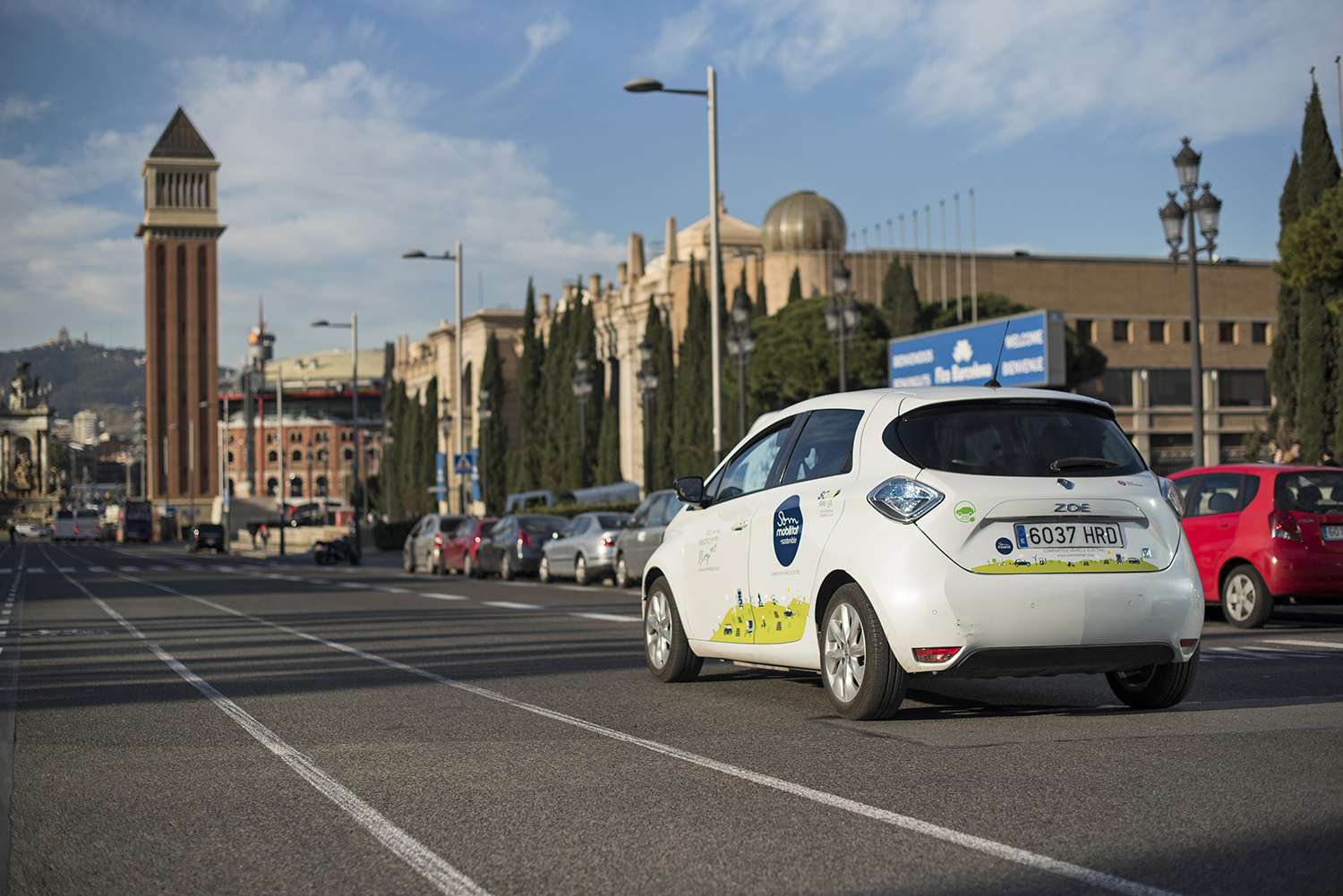
Joining forces at the EU level
In 2014, Partago was a fairly small cooperative aiming to start carsharing services in the Belgian city of Ghent. They had developed a first draft of a platform that would allow them to share cars, but the cost of developing it was quite significant. They needed as many users as possible to make the business economically viable, but the number of citizens they could attract in a city of 250,000 inhabitants was insufficient to offset the development cost of the platform.
At the same time, some other cooperatives from the REScoop.eu network wanted to start carsharing activities in their region. They were exploring possible business models, including the cost of developing a platform – something that Partago had already done - or paying for the use of an already developed commercial solution.
REScoop.eu put these cooperatives in touch with Partago and set up a Mobility working group to help them meet their needs in a collaborative way. At that time, Daan Creupelandt, coordinator at REScoop.eu, coordinated that group.
“This working group brought together a bunch of our members, including Partago that had just joined REScoop.eu, to discuss how they could work more closely together in the field of electric carsharing. The two main drivers of the working group were Partago, who were keen to share the platform they developed with as many cooperatives as possible to share the initial cost, and Som Mobilitat, who knew exactly what they needed and what it would cost and saw the opportunity of using the platform already developed by Partago.”
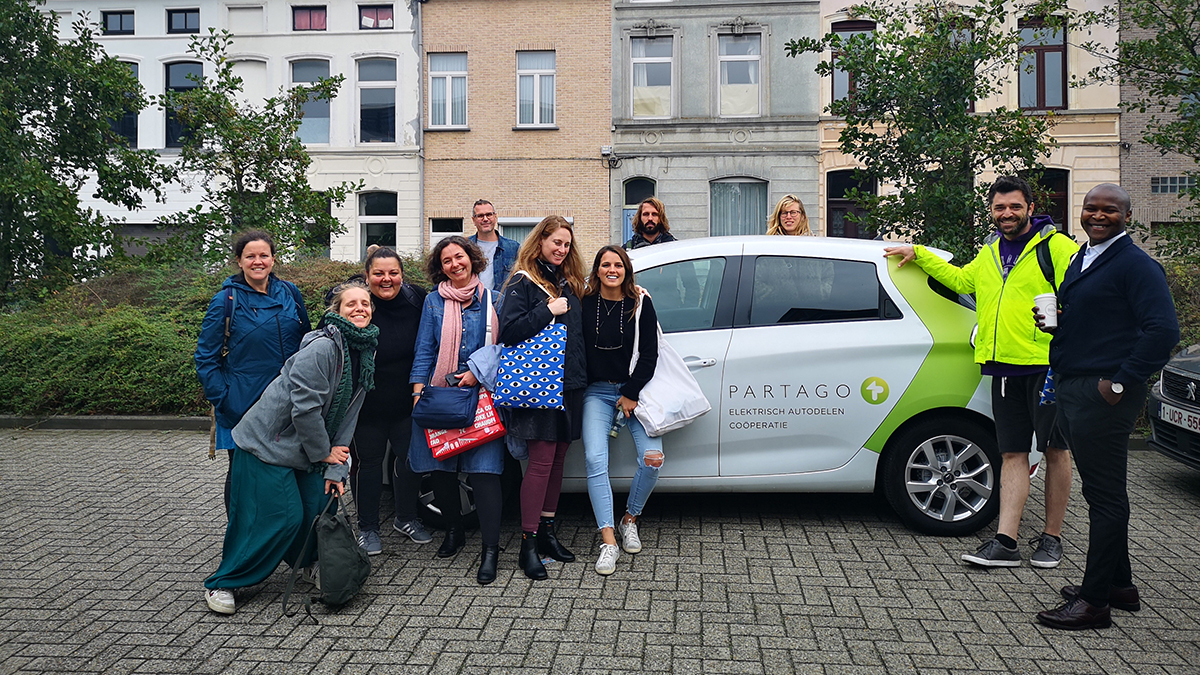
After three years of working together under the umbrella of the REScoop.eu’s Mobility working group, the cooperatives felt the need to set up a more formal structure that would allow them to further collaborate and share the platform with other cooperatives. The result was the creation of the European cooperative enterprise The Mobility Factory. It was launched in 2018 by eight cooperatives together with REScoop.eu and now has 17 members from six different countries: Belgium, the Netherlands, Germany, Spain, France, and the United Kingdom. REScoop.eu is part of the board and all members of The Mobility Factory must also be members of REScoop.eu.
Empowering energy cooperatives to offer mobility services to their members
The Mobility Factory owns the carsharing platform developed by Partago and offers it to its members. Besides sharing the costs for the development of an IT solution, the main advantage of this cooperative model is that all members are co-owners of the software. Thus, they can participate in its development by deciding on the next features through a democratic process. Daan explains the advantages of this model for new communities.
“Cooperatives can still make all the community engagement decisions, such as the business model, pricing policy, branding, and so on, but they don’t have the hassle of setting up their own platform. If you are very small and just starting, setting up such a platform or using a commercial one that is already available in the market is really expensive. In that sense, The Mobility Factory really covers a need that we saw among REScoop.eu members.”
Today, 250 electric cars across Europe are using the The Mobility Factory’s technology - an online booking system, a mobile application, and a payment and management tool -, and the cooperative employs a team of four enthusiastic people. Lukas Reichel, a Swiss electrical engineer, leads the team and states that finding a software company that applies the cooperative values and principles is quite unique. This also has advantages in terms of independence and data management.
“All the data and business intelligence generated by our platform and all the knowledge that The Mobility Factory has, belongs to our community. This empowers our cooperative members because the value of this information belongs to them. This contrasts with commercial platforms where the know-how is kept by the service provider company and not shared with the users.”
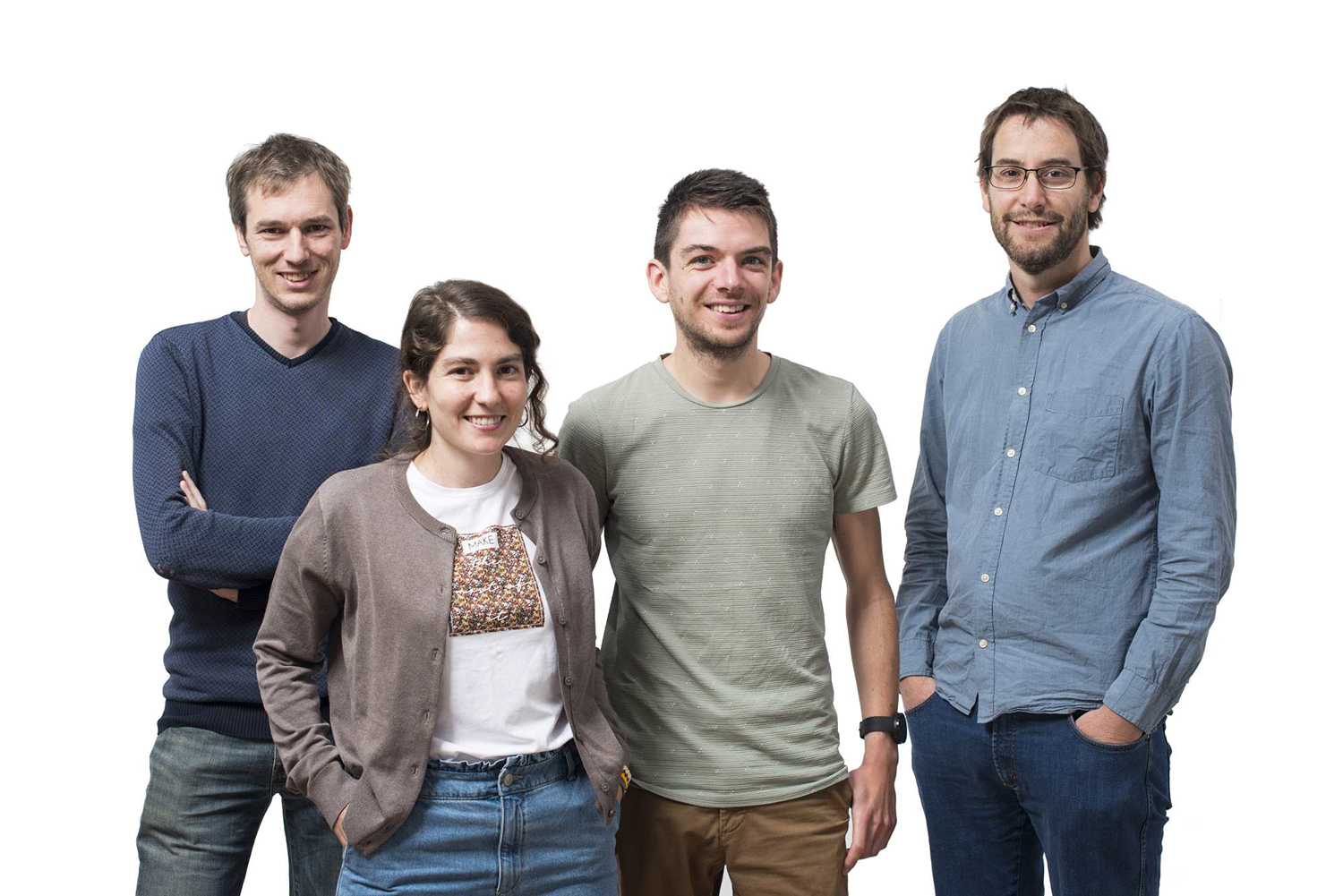
The next steps of The Mobility Factory
Until now, The Mobility Factory has been funded exclusively by its cooperative members, which allowed the platform to grow organically. However, earlier this year, the board decided to launch a crowd investment campaign to accelerate growth and reach more cooperatives.
The crowdfunding has already reached its optimal goal of €250,000, but you can still invest if you want to help them reach their maximum goal of €350,000. Investors become members of the cooperative and have a voice in its decisions.
The money raised through the crowdfunding will be used to expand the team, improve the current platform and complement it with new services, such as the integration with energy systems or supporting inter-operation (roaming) between cooperatives. Lukas hopes to involve “several hundred” cooperatives in The Mobility Factory over the next five years, all of which “will have a major impact on reducing greenhouse gas emissions by transforming the mobility of their members.”
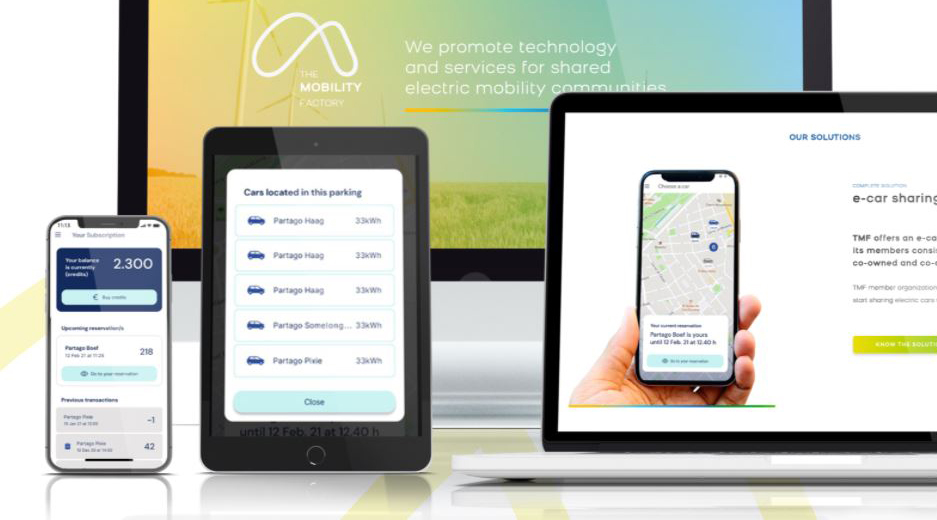
The future of mobility
Looking at the future of energy communities working on mobility, Daan thinks that the main hurdle for the expansion of electric carsharing is people’s mindset.
“We need to convince people that they don’t necessarily need to own a car themselves, but that they can share one with the community. Many people buy a car that it is just standing in front of their door all the time and that’s not what cars are made for. It actually makes no sense for people to buy a private car if they drive less than 10,000 km per year. We have to make people realise that they are not giving up any comfort in their lives if they do not own a car. To do this, we need to provide them with a good platform and a good service that they can rely on.”
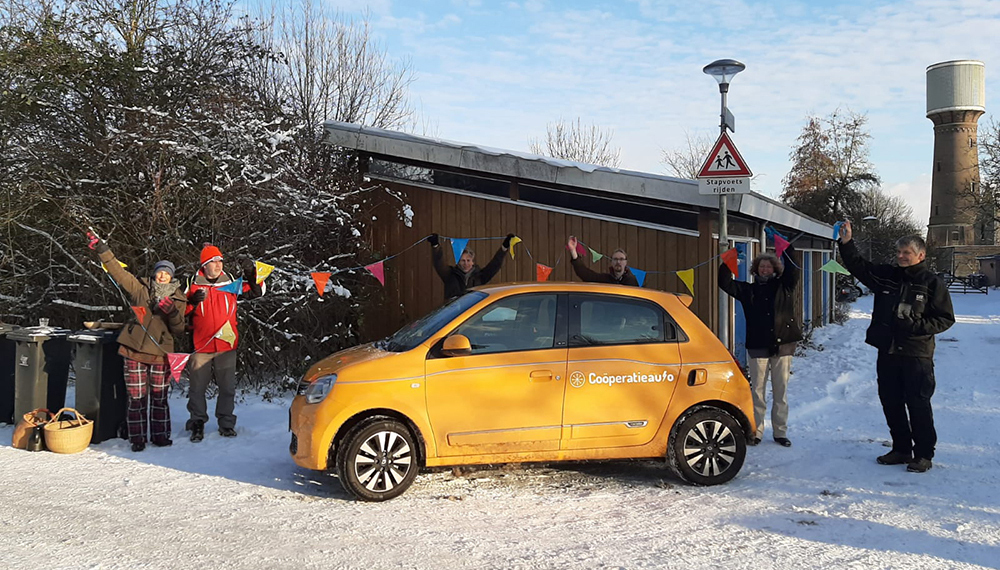
Lukas is also clear about the need to move away from private car ownership.
“We all are aware that the current mobility model based on fossil fuels causes serious environmental damage and harms human health. However, our climate goals will not be achieved by simply replacing combustion engine vehicles with electric ones, increasing or maintaining the number of cars is not a solution. Today, electric car sharing is the most ecological way to move around on four wheels.”
Although electric carsharing has a high barrier to entry for energy communities, it is clear that it will gain importance in the future. By doing it in a cooperative way, the benefits will stay in the local community, citizens can design the services according to their needs; and The Mobility Factory can help reduce the initial financial barrier.